Abstract
Pigs experimentally infected as weanlings with swine influenza virus, as described in previous papers, were bred from when mature. Attempts to isolate virus at parturition from the placenta and from different organs of some of the piglets immediately after birth gave negative results. Antibody levels were determined in the sows and remaining piglets at different times after birth, and the clinical course, immunity and antibody formation were studied in some of the piglets challenged with swine influenza virus 10 days after birth. The levels were found to be generally higher in the sows than those in their offspring. Specific antibodies were detected in piglets that had presumably not ingested colostrum, but the possibility of unobserved ingestion of colostrum could not be excluded. Colostrum-fed piglets had specific antibody in their sera; an increase in antibody titre occurred by the 10th day after birth, remained until the 20th day and decreased steadily to the 30th day. Colostrum-fed piglets receiving antibodies from immune dams were resistant to a challenge of virulent swine influenza virus, and did not respond with an antibody rise during a 30-day observation period after challenge.
Full text
PDF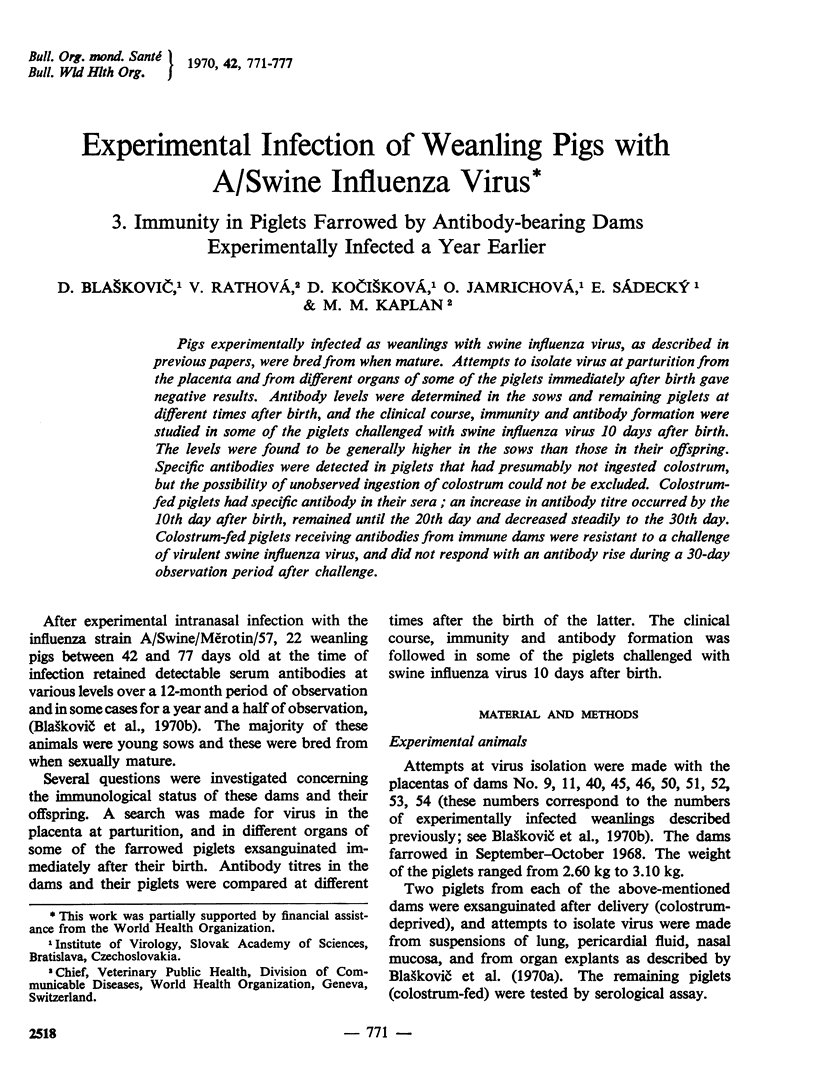
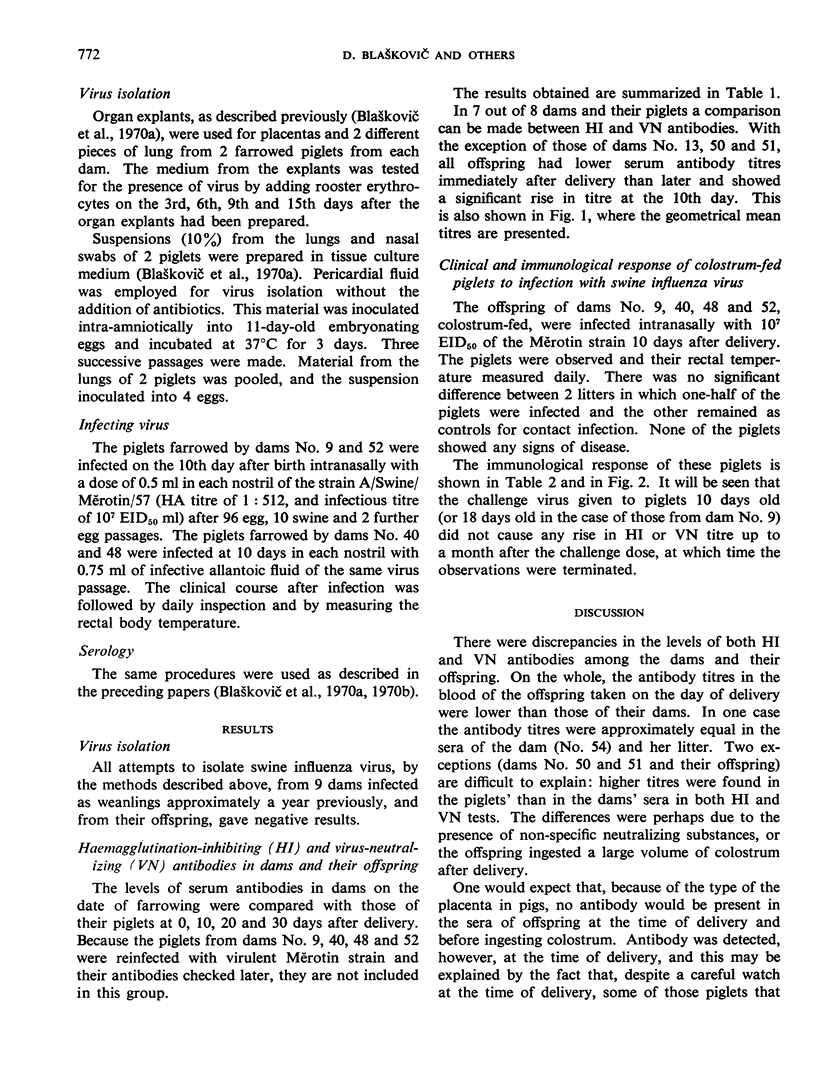
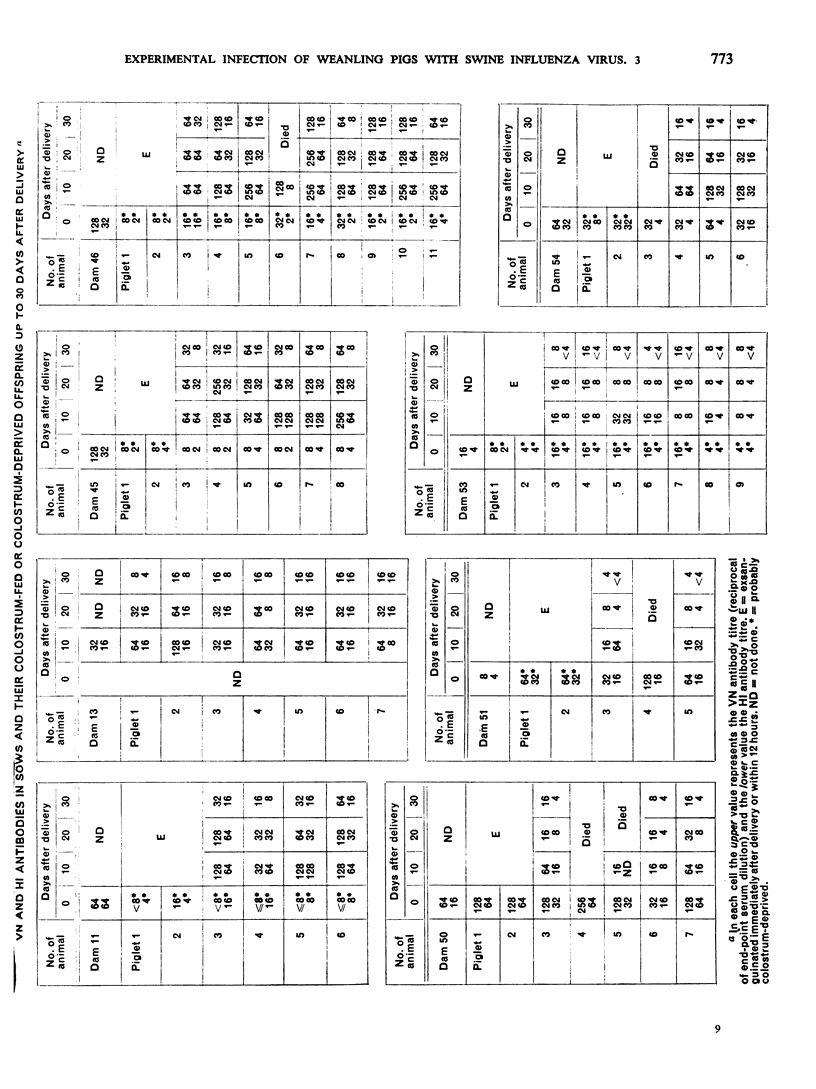
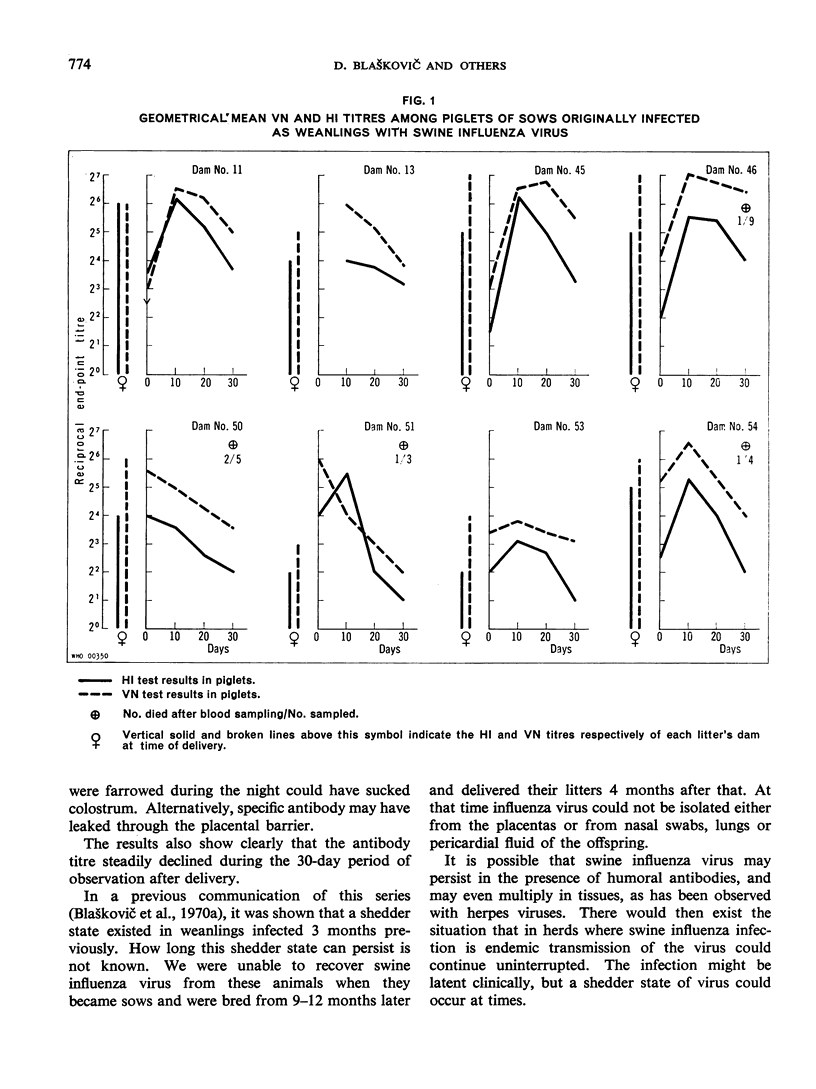
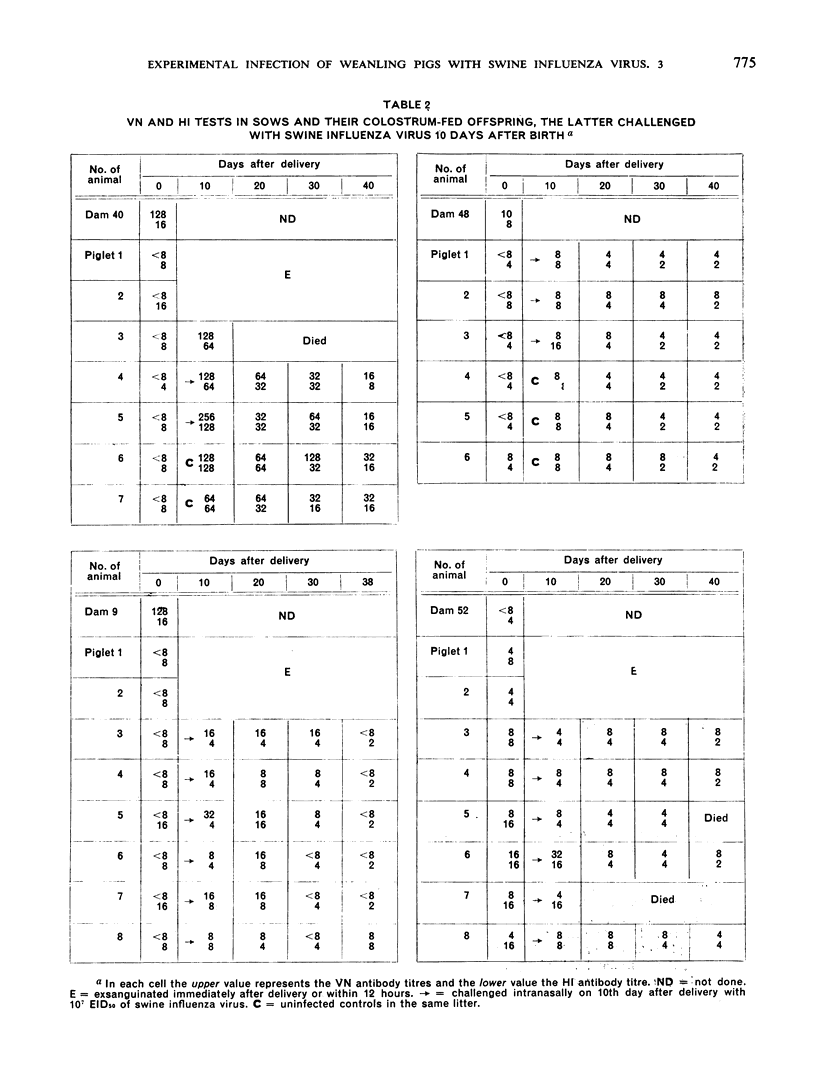
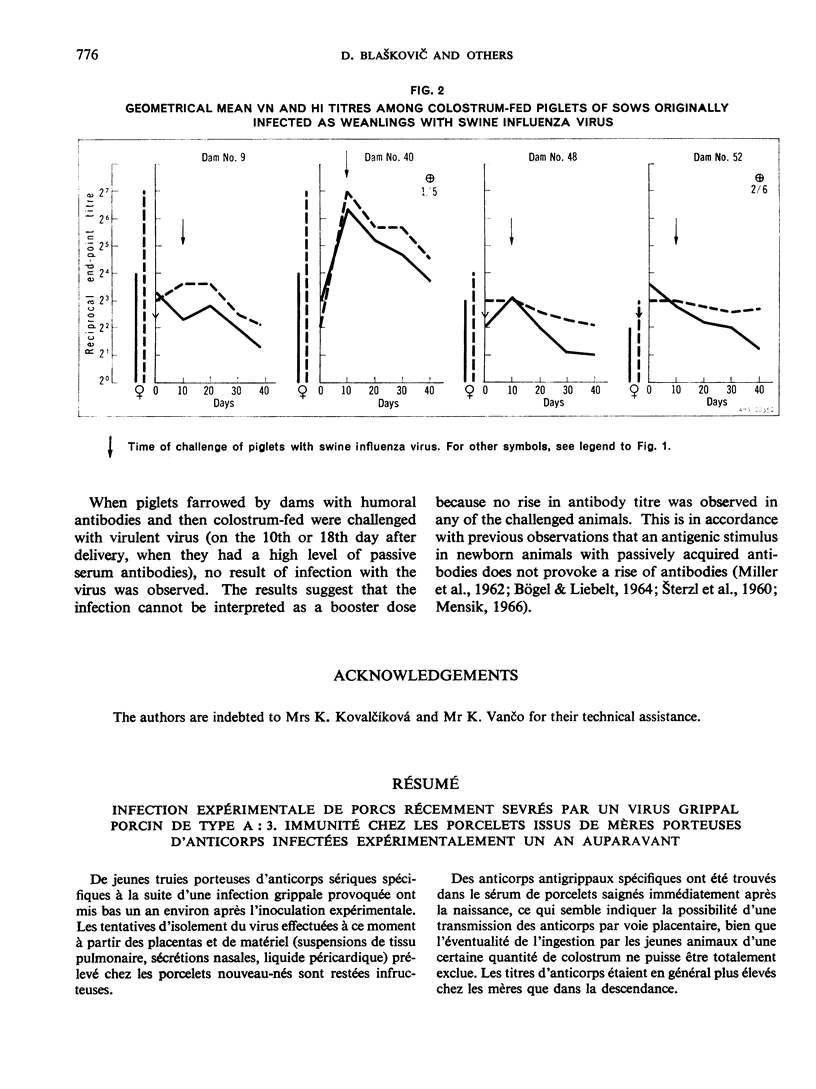
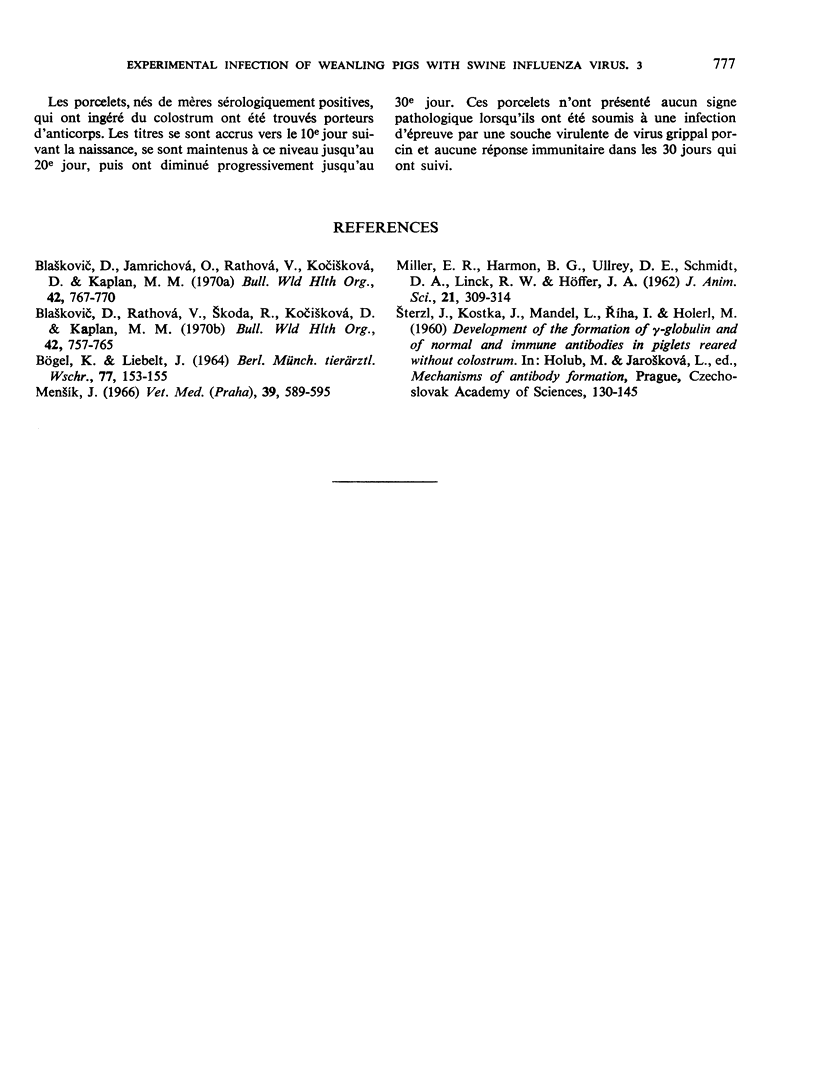
Selected References
These references are in PubMed. This may not be the complete list of references from this article.
- Blaskovic D., Jamrichová O., Rathová V., Kaplan M. M., Kocisková D. Experimental infection of weanling pigs with A-swine influenza virus. 2. The shedding of virus by infected animals. Bull World Health Organ. 1970;42(5):767–770. [PMC free article] [PubMed] [Google Scholar]
- Blaskovic D., Rathová V., Skoda R., Kocisková D., Kaplan M. M. Experimental infection of weanling pigs with A-swine influenza virus. I. Epidemiology and serological response. Bull World Health Organ. 1970;42(5):757–765. [PMC free article] [PubMed] [Google Scholar]


